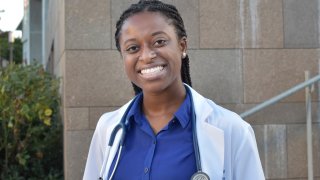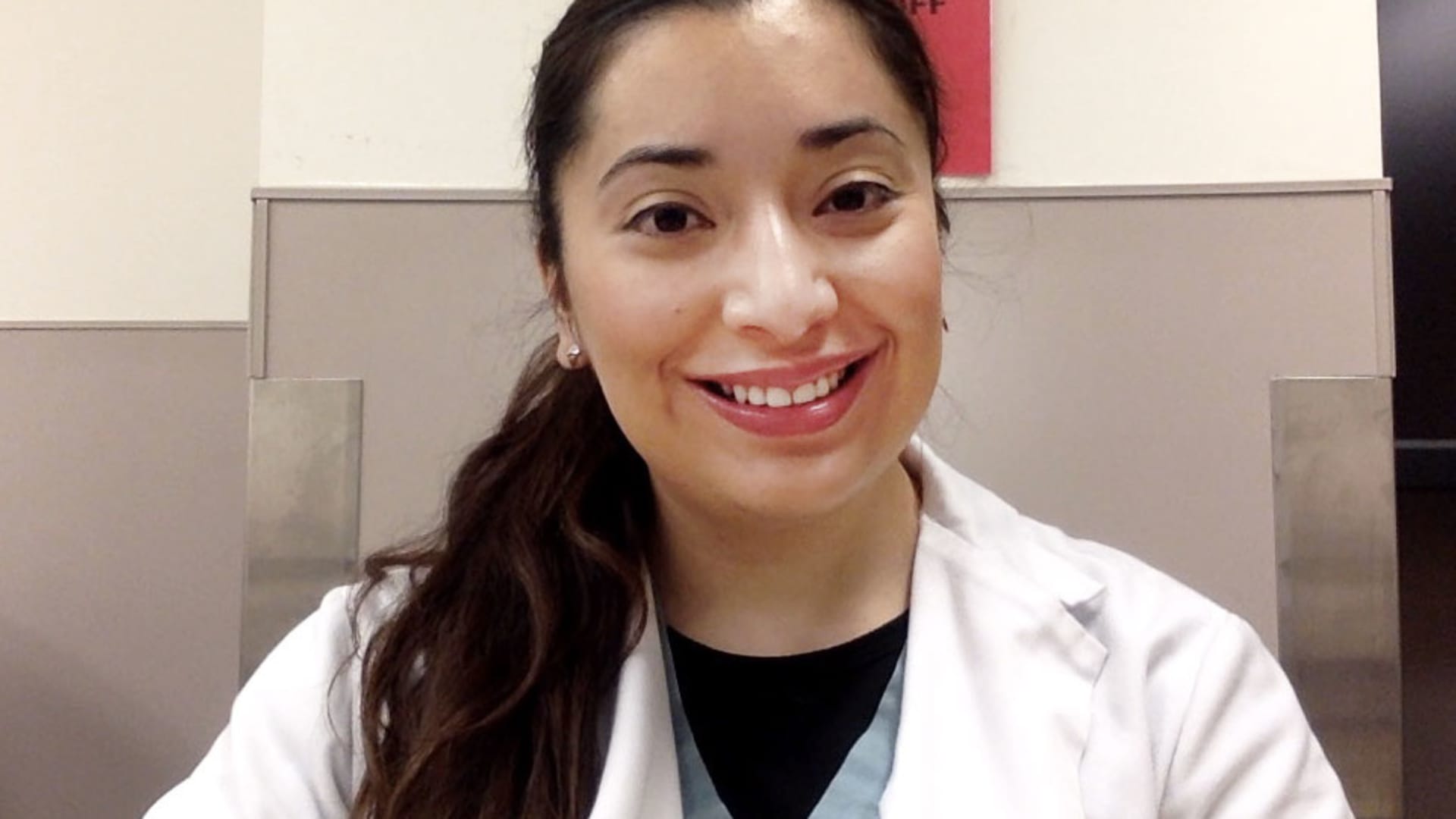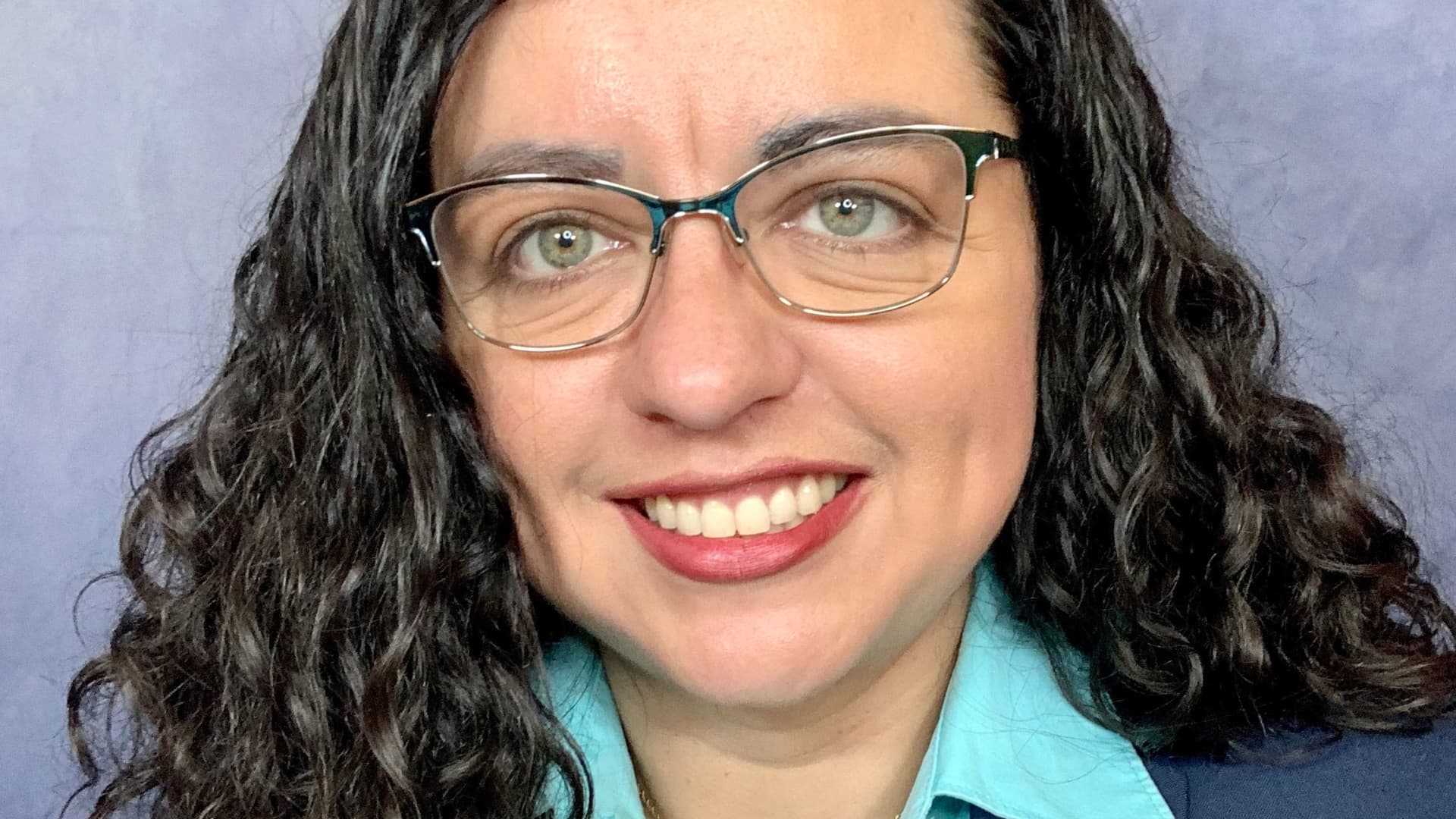
As we head into the second year of the coronavirus pandemic, health-care workers have been applauded as heroes for fighting an unpredictable and deadly virus. It's taken a toll on them physically and mentally, yet applications to medical schools for the 2021 academic year have surged by 18%, according to the Association of American Medical Colleges.
"Over the last year, we've seen the Covid-19 pandemic increasing physician stress, which has led to higher rates of burnout, retirement and made physician shortages worse," said Robert W. Seligson, CEO of Physicians Foundation.
Now, nearly 60% of nurses and 20% of physicians say they're looking to call it quits due to Covid stress. Some doctors have even decided to retire early, causing the worst staffing shortage in decades.
But instead of deterring med students, the pandemic has actually motivated them even more to pursue a career in health care.
Get South Florida local news, weather forecasts and entertainment stories to your inbox. Sign up for NBC South Florida newsletters.
"[W]e are witnessing health-care workers go through the hardest parts of their jobs," said Miriam Cepeda, a pre-med student at Columbia University. "But at the same time, I think this pandemic has shown me and my fellow pre-med peers just how impactful our work will be."
More from CNBC's College Voices series:
These college students are working as contact tracers to stop the spread of Covid on campus
These college students worry they may not graduate on time due to the coronavirus pandemic
Here's what college students need to know about making a budget — and sticking to it
At Tulane University School of Medicine in New Orleans, applications for admission to the class of 2025 are up more than 35% compared to the same time last year. At Boston University School of Medicine, they've risen by 26%. And at Saint Louis University School of Medicine, admissions officers have seen applications increase by 27%.
Money Report
Dr. Rafael Rivera Jr., associate dean for admissions for NYU Grossman School of Medicine, said another factor for the rise in applications is the job market during the pandemic.
"Whenever there is a period of uncertainty, especially economic uncertainty with individuals worrying about the likelihood of getting a job, medical school applications tend to increase. People recognize that regardless of what's going on around us, we always need physicians, nurses, and other health-care professionals to look out for our well-being- and that contributes to a sense of job security many find desirable," said Dr. Rivera Jr.
And the application process for medical schools has become more affordable due to the pandemic. Medical schools have shifted to virtual interviews, which decreased travel costs for medical school applicants. Some schools have also waived MCAT requirements and extended application deadlines for the admission process.
To accommodate for the increase in applications, NYU Grossman School of Medicine is developing an artificial intelligence algorithm that replicates faculty decisions to screen applications.
"It returns those decisions in the blink of an eye, scales to accommodate any increase in applications, and reduces the impact of individual human bias," said Dr. Rivera Jr. "It also provides applicants with timelier decisions and ensures we can thoroughly screen everyone completing an application to our school."
"It is no surprise that the pandemic hit minority communities the hardest, given their underrepresentation in health-care access and political support," said Violeta Osegueda, a fourth-year medical student at the University of California, Irvine. "On the service I was on, nearly 30 patients [had] Acute Respiratory Distress Syndrome secondary to Covid-19 pneumonia; most of those were Latinos."

"The pandemic has made me want to pursue the medical field because there continues to be a massive gap in access to medical care," added Azan Virji, a second-year medical student at Harvard University. "Marginalized groups still find themselves with less access to correct medical information, testing, and vaccines — something I hope to work on as a physician."
"The pandemic has highlighted the health disparities that communities of color face and has taught me that becoming a physician is not only about saving lives. It is also about trying to improve the quality of life for our patients by addressing the factors and barriers that influence their health," said Chika Okeke, a first-year medical student at the University of California, Irvine School of Medicine.
Medical schools are also seeing a more diverse pool of applicants than ever before. The AAMC reported in October 2020 that they were seeing Black and Latinx individuals applying to U.S. medical schools in higher numbers compared to the same time last year, in some cases with a double-digit year-over-year increase.
At the NYU Grossman School of Medicine, the number of applications from underrepresented minority applicants has more than doubled since 2018, when the medical school announced their tuition-free scholarship program.
Some medical students are already working on solutions to address racial disparities in health care before they even graduate.
Axana Rodriguez-Torres and Violeta Osegueda, both students at the University of California, Irvine School of Medicine, partnered to create a website called medicalspanish.org to provide medical resources in Spanish. They focused on addressing Covid in the Latino community, particularly vaccine hesitancy.
"There has been a historic lack of health-care access for these communities, which has led to sick communities that are mostly undiagnosed, untreated or undertreated. The pandemic made these circumstances much more grossly evident making it clear that these communities need our immediate attention and support," said Rodriguez Torres, who is also part of the Program in Medical Education for the Latino Community at UCI.

Many medical students share the sentiment that diversity is of utmost importance for the future of the medical field.
"As the U.S. patient population becomes more diverse, the medical field must also follow suit so that our patients are served by people who look like them, understand their culture, and can speak to them in their native tongue," said Virji.
And, while the past year has proven how physically and emotionally crushing working in health care can be, many doctors say it's also incredibly rewarding.
"Medical students can look forward to joining what, in my mind, is the noblest of professions," said Dr. Rivera Jr. "Caring for patients and performing scientific research to identify tomorrow's cures are among the most personally fulfilling pursuits in life."
CNBC's "College Voices" is a series written by CNBC interns from universities across the country about coming of age, getting their college education and launching their careers during these extraordinary times. Colette Ngo is a senior at Chapman University double majoring in broadcast journalism and business administration. The series is edited by Cindy Perman.
SIGN UP: Money 101 is an 8-week learning course to financial freedom, delivered weekly to your inbox.
CHECK OUT: 'We were able to negotiate $15,000 off': How students saved thousands on college tuition via Grow with Acorns+CNBC.
Disclosure: NBCUniversal and Comcast Ventures are investors in Acorns.






